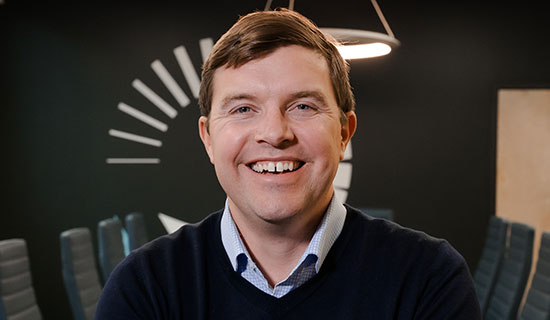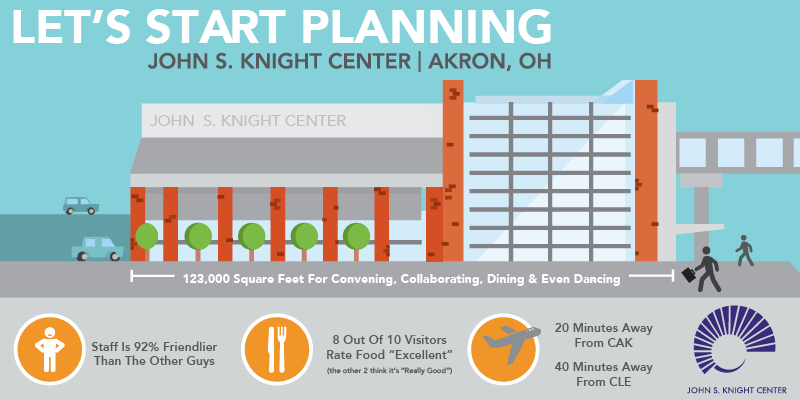We live in a world of waste. Americans throw out 4.9 pounds per person per day, generating nearly 300 million total tons of municipal solid waste per year, according to the latest statistics from the Environmental Protection Agency. More than half of that waste winds up in landfills.
As entrepreneur Graham Rihn learned about the growing rate of commercial waste production, the environmental concerns that production creates and the outdated, cost-prohibitive and inefficient processes companies use for their waste and recycling programs, he realized there had to be a better way.
The result is RoadRunner Recycling, a growing Pittsburgh-based company that uses tech to take out the trash.
“We work with businesses on comprehensive waste management programs,” says Rihn, RoadRunner’s founder and CEO, “which helps them save money and recycle more.”
RoadRunner is a data-driven business that is setting a new standard for waste and recycling services. Through the use of cutting-edge technology, including artificial intelligence, RoadRunner helps companies recycle while enhancing its own profitability.
Founded as a startup in New York City in 2014 and transported to Rihn’s hometown of Pittsburgh in 2017, RoadRunner has gone, in the last seven years, from having about 30 employees servicing customers in three cities to having more than 500 employees servicing more than 12,000 customers across the country. RoadRunner has helped restaurants, office buildings, manufacturers, grocery chains and other businesses modernize to recycling systems that are affordable, reliable and sustainable.
It is explosive growth with an exemplary goal of a world of Zero Waste, in which all products are repurposed or reused, as opposed to going to landfills.
“We have an opportunity,” Rihn says, “to make a huge impact on this country’s recycling rate.”
Waste goes to landfills as a matter of convenience. But that convenience comes with a long-term cost to the environment and future generations. RoadRunner’s metholodogy gives companies a convenient means of reducing their carbon footprint. It is already responsible for 1 million tons of recyclable materials diverted from landfills and 3.45 million tons of greenhouse gas emissions avoided.
All because of a CEO who became, in his own wording, “obsessed” with an industry that many others neglected.
ADVERTISEMENT
Waste not, want not
Rihn graduated from Cornell University, where he was a linebacker for the football team, in 2009 with a bachelor’s degree in applied economics and management. He had a big interest in data. Rihn worked for a company that handled utilities for buildings in Washington, D.C., and began to get a feel for the attention — or lack thereof — that businesses pay to their waste.
As he studied further, Rihn learned that waste management is an $85 billion industry that was way behind the times.
“I realized how small the role of technology was in trying to make the industry different,” Rihn says. “And by different, I mean really pushing innovation to lessen the dependence on landfills. It sort of blew my mind how big the industry was, and so I got super excited.”
While living in Manhattan, Rihn would see the garbage and recycling bins and bags piling up on the side of the city streets on garbage days and imagine a new system in which trucks pick them up with the speed of those fast-running chaparral birds made famous by a certain, coyote-thwarting Looney Tunes cartoon character.
That’s how RoadRunner was born.
“My belief in how big the problem is and what the solution could be was just too big,” Rihn says. “I had to move forward with it.”
As Rihn studied the traditional recycling system in the U.S., here’s what he found:
Most haulers use what’s called the “single-stream recycling method,” in which all recyclables (paper, plastics, glass, metals, cardboard) are placed in a single bin or bag, then hauled by fuel-inefficient garbage trucks to far-off, hauler-owned recycling facilities, where humans and machines complete the sorting process. The “contamination” rate — i.e., food waste, Styrofoam and other nonrecyclables mixing with the recyclables and rendering them unusable — is extremely high with this system. Around 80 percent of materials intended to be recycled wind up in landfills, anyway.
RoadRunner developed a different method. For starters, the company uses what it calls “Clean Stream Recycling,” in which customers sort their recyclables by stream — cardboard, commingled (glass, aluminum, plastic), mixed paper and compost. Then, RoadRunner partners with reputable local fleet-based drivers to transport those uncontaminated recyclable materials direct to local buyers, eliminating the need for sorting centers. Not unlike ride-share services, RoadRunner uses a web-based app to dispatch truck drivers with downtime and empty trailers to pick up these small loads, making use of the excess capacity of trucking assets and utilizing vehicles that are more fuel-efficient than the traditional garbage trucks.
“From day one, we just acquired as much data as possible in this industry, with a goal of allowing us to make really accurate predictions,” Rihn says. “We use data to identify operational efficiency, deliver savings to customers and drive recycling opportunities to customers. So, really, everything that we do for customers is driven by data.”
Since its inception, RoadRunner has secured $149 million in funding from growth equity firms because of the possibilities this method presents in an industry in which data usage was previously scarce.
RoadRunner’s proprietary tech evaluates all facets of an organization’s waste management to identify inefficiencies and billing discrepancies. Artificial intelligence is used in various facets, including rugged, in-Dumpster smart cameras powered by AI to determine how much waste is produced in order to optimize the service schedule. These same cameras can identify contamination.
If there is a barrier to overcome in spreading the use of this technology, it is getting businesses to sit down and have a conversation about their waste management systems — an often-overlooked element of businesses.
“The good news,” Rihn says, “is that once the conversation happens, and customers realize that we can guarantee them cost savings, it really helps advance communication quickly.”
RoadRunner has more than 200 employees in its sales department having those conversations with companies across the country. RoadRunner’s customers can save anywhere from 10 to 15 percent on their waste management costs while potentially tripling their recycling rates due to the single-stream method and optimized recycling routes. New customers excite Rihn not just because they grow his business but because the ensure less waste going to landfills.
“The ultimate mission here,” Rihn says, “is to dramatically increase recycling in the U.S.”
And that’s why RoadRunner hires employees who are mission-aligned.
A commingled company
Like so many entrepreneurs, Rihn had friends and family who thought he was crazy as he began to devote his time and attention to waste management. But as RoadRunner has grown, he’s found plenty of other people who share his desire to positively impact the planet.
“Just generally, we find people that are passionate about anything in their lives really work well here,” Rihn says. “They may be passionate about coffee outside of work. But we think if they’re passionate about coffee, they can be passionate about RoadRunner and add a ton of value.”
Pittsburgh has proved a perfect alignment, too. When RoadRunner was in its infancy, Rihn wanted to find a headquarters in which he could build a large customer base and do plenty of research and development of his system. His hometown of Pittsburgh (Rihn grew up in Allison Park and is a 2005 graduate of Central Catholic High School) offered an attractive combination of cost and quality of life. RoadRunner recently moved its physical headquarters from downtown Pittsburgh to Lawrenceville.
“It’s been great,” Rihn says of the marriage between RoadRunner and the region. “I think the folks who have moved here have loved it here. It’s no secret that there’s great access to tech talent in Pittsburgh that we get to take advantage of. And just from an overall cost of living standpoint, it’s a favorable city to grow your head count.”
Beyond driving better recycling rates via the business, RoadRunner’s employees also volunteer in the community by picking up litter at local parks and trails.
As it reaches the 10-year anniversary of its founding, RoadRunner is providing services to businesses both large and small across all 50 states, with an eye on steady and consistent expansion across new and existing markets in the U.S. and, potentially, other countries.
“Our aspirations,” says Rihn, “are large.”
Reducing our world of waste is a large task. And like many entrepreneurs, Rihn had friends and family who thought he was crazy for taking it on. But RoadRunner’s task is both a noble and valuable one. The company has identified a way to make protection of the environment profitable, with inventive use of the latest tech.
RoadRunner’s early success has provided Rihn with valuable perspective to pass on to others with an entrepreneurial bent.
“Identify a big problem that you’re passionate about that you believe there’s a solution to,” he says. “That’s probably the most important thing you could do. And then, hopefully, build confidence and courage enough for you to be ready to dive in.” ●



